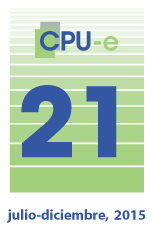Resumen
En el presente libro se despliegan diversos momentos durante el desarrollo de un trabajo de investigación por parte de un estudiante de doctorado. Se explica cómo elegir el tema, los enfoques, qué tipos de relaciones se establecen con el director de tesis, los problemas de la escritura, las publicaciones que debe realizar, la presentación oral en seminarios y congresos, la adopción de una postura de investigación y su compromiso como investigador. El objeto de este anti-manual es establecer un lazo entre la experiencia individual condicionada por la escritura y el contexto institucional y colectivo de la investigación, en la que los estudiantes de doctorado con frecuencia se sienten perdidos. Los autores del libro están convencidos que cuando se hace una investigación y se escribe una tesis, no solamente se aprende sino también se trasmiten conocimientos.
Abstract
This book unfolds different moments that occur during the research work carried out by PhD students. It explains the topics, standpoints, what kind of relationship can be stablished with the thesis director, writing issues, the publications to be made, oral presentation in seminars and congresses, taking a stand in research and the researcher’s commitments. This anti-manual goal is to stablish a bond between personal experience, conditioned by writing and the institutional context, and the research process as a whole, in which the doctorate students often feel lost. This book’s authors are convinced that by doing research and writing a thesis, you not only learn but also communicate knowledge.
Recibido: 01 de mayo de 2015
Aceptado: 23 de junio de 2015
Citas
Elias, N. (1991). Qu´est-ce que la sociologie? (Trad. Y. Hoffman). París: Aube.
Herzlich, C. (2002). Réussir sa thèse en sciences sociales. París: Nathan.
Passeron, J. C. (2004). Ecrire, réécrire et dire vrai en sociologie. En H. S. Becker, Écrire les sciences sociales. Commencer et terminer son article, sa thèse ou son livre (pp. VII-XXVI). París: Económica.
Los autores son los legítimos titulares de los derechos de propiedad intelectual de sus respectivos artículos, y en tal calidad, al enviar sus textos expresan su deseo de colaborar con CPU-e, Revista de Investigación Educativa, editada por el Instituto de Investigaciones en Educación de la Universidad Veracruzana.
Por lo anterior, de manera libre, voluntaria y a título gratuito, una vez aceptado el artículo para su publicación, ceden sus derechos a la Universidad Veracruzana para que el Instituto de Investigaciones en Educación reproduzca, edite, publique, distribuya y ponga a disposición dicha obra a través de intranets, internet o dispositivos de almacenaje, sin limitación alguna de forma o tiempo, siempre y cuando sea sin fines de lucro y con la obligación expresa de respetar y mencionar el crédito que corresponde a los autores en cualquier utilización que se haga del mismo.
Queda entendido que esta autorización no es una cesión o transmisión de alguno de sus derechos patrimoniales en favor de la mencionada institución, ni tampoco una licencia exclusiva, pues sólo tendrá una vigencia de seis meses a partir de la fecha de publicación.

CPU-e, Revista de investigación Educativa,
así como todos sus contenidos están bajo una
Licencia Creative Commons
Atribución-NoComercial 4.0 Internacional.

